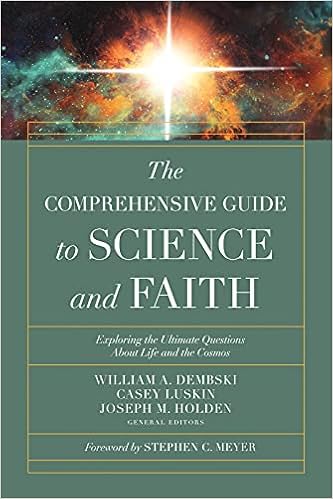
Philosophy of science prof Mike Keas is one of the contributors to The Comprehensive Guide to Science and Faith: Exploring the Ultimate Questions About Life and the Cosmos (2021) and a free excerpt from his chapter is available. He reminds us of Christina apologist C.S. Lewis (1898–1963)’s approach:
“Whatever space may be in itself … we certainly perceive it as three-dimensional, and to three-dimensional space we can conceive no boundaries,” he writes. So we naturally feel that the cosmos is huge. What if we discovered nothing but our own sun and moon in such seemingly infinite space? “This vast emptiness would certainly be used of God,” Lewis notes. In that case, atheists would argue that no God would create such vast amounts of wasted empty space.
Lewis runs through the other options: “If we discover other bodies, they must be habitable or uninhabitable: and the odd thing is that both these hypotheses are used as grounds for rejecting Christianity.” If there are billions of habitable planers, then the skeptic would likely say that this means humans are not special. We would be lost in a crowd of aliens, or so the story goes.
Lewis continues: “If, on the other hand, the Earth is really unique, then that proves that life is only an accidental by-product in the universe, and so again disproves our religion.” In that case, atheists might further complain that no God would create trillions of sterile planets-what a lousy design.
Do you see the problem? No matter how God might have made the universe and life, skeptics would surely complain about something to the point of disbelief What we have here isn’t truth-seeking, but rather, game rigging.
Mike Keas, “The Big Myth: Big Universe Is a Problem for Religion” at Evolution News and Science Today (October 12, 2021)
There’s a lot of that about these days.